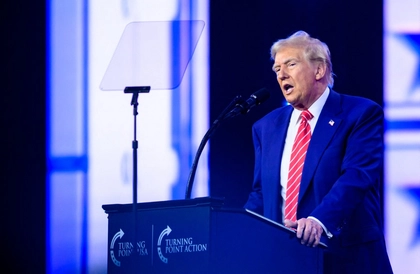The House voted 352 to 65 on Wednesday in favor of legislation that could lead to the banning of TikTok in the United States.
Bipartisan support for the bill underscores concerns among both Republicans and Democrats about the popular video-sharing app’s ties to China and its potential threat to national security.
JOIN US ON TELEGRAM
Follow our coverage of the war on the @Kyivpost_official.
“Communist China is America’s largest geopolitical foe and is using technology to actively undermine America’s economy and security,” Speaker Mike Johnson, a Republican from Louisiana, said in a statement after the vote, adding that the app could be exploited to access sensitive American data and disseminate harmful information.
“Today’s bipartisan vote demonstrates Congress’ opposition to Communist China’s attempts to spy on and manipulate Americans, and signals our resolve to deter our enemies,” he said.
However, the bill still faces an uncertain future in the Senate, and lawmakers seem less urgently inclined to address the issue.
In the House, 50 Democrats and 15 Republicans voted against the bill. Critics of the legislation, like Republican Jim Himes, a Democrat from Connecticut, raised concerns about potential infringements on free speech.
They argued against governmental intervention in regulating information flow, contrasting the US’s democratic principles with the restrictive practices of adversarial regimes like China.

Which Foreign Leaders Are Invited to Trump’s Inauguration?
“I’m not sure what we’ll do yet, got to talk to lots of people,” said Senator Maria Cantwell, a Democrat from Washington State who leads the Senate Commerce Committee.
“The whole point here is you have a dilemma. You want free speech, but you also want the United States to have some ability to protect US citizens or US military from foreign actors who might be deleterious in what they would be using as a tool of communication,” Cantwell said.
TikTok, owned by China-based parent company ByteDance, launched a lobbying effort to defeat the bill, citing First Amendment rights and the adverse impact on its vast user base and small businesses reliant on the platform.
Our statement on today's House vote: This process was secret and the bill was jammed through for one reason: it's a ban. We are hopeful that the Senate will consider the facts, listen to their constituents, and realize the impact on the economy, 7 million small businesses, and…
— TikTok Policy (@TikTokPolicy) March 13, 2024
The legislation, officially named the Protecting Americans From Foreign Adversary Controlled Applications Act, seeks to empower the president, through intelligence agencies, to designate social media applications controlled by foreign adversaries as national security threats.
Once designated, these apps would face expulsion from online platforms unless they severed ties with foreign entities within a specified timeframe.
You can also highlight the text and press Ctrl + Enter










